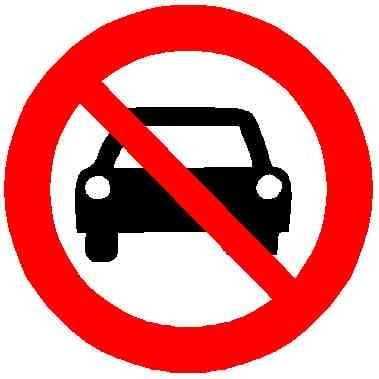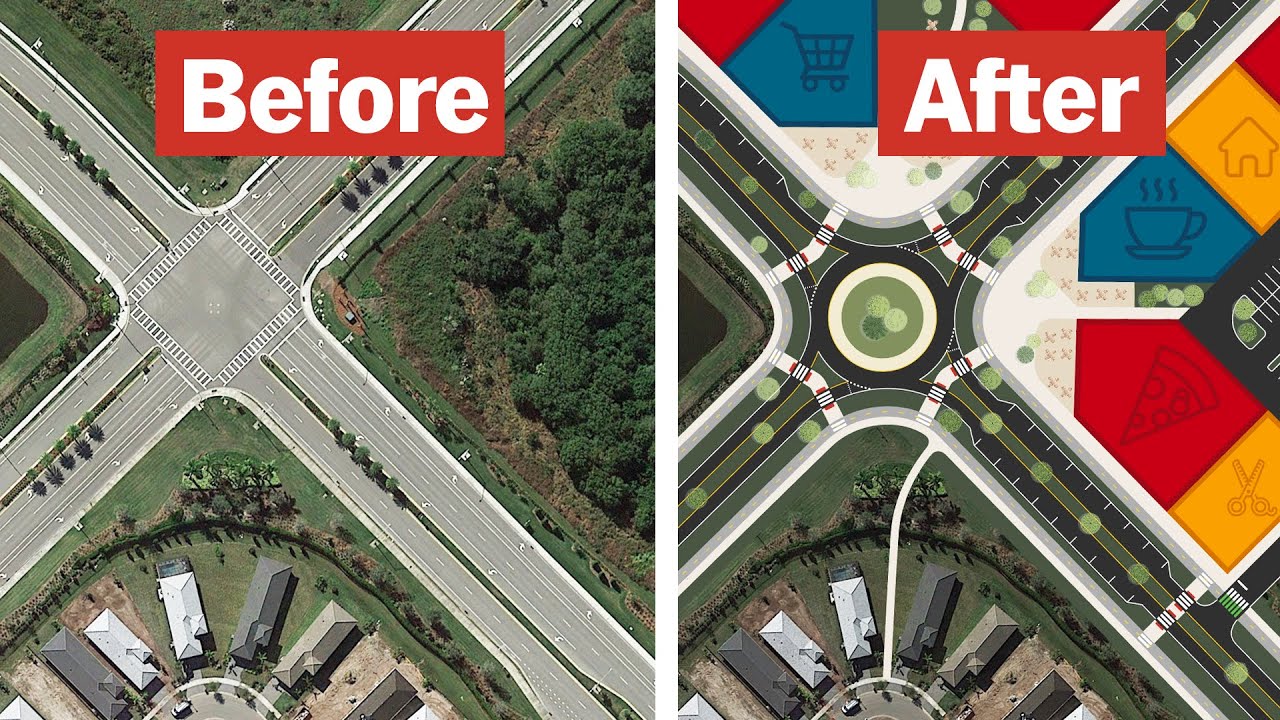And here’s my European suburb ass thinking those 13 minutes to walk to the store are rather long…
I live in a small European town (~17000 persons) and if I walk 13 minutes I get to the other side of the town.
Largely overlooked feature of overzoning, parking requirements and setback regulations are the economical opportunity cost - odd for the USA and its history of deregulation and neoliberalisation.
I agree, it seems like it should be easy to convince libertarians and conservatives with deregulations, but exactly how to frame that argument is tricky.
Deregulation would be a horrible idea, given the disasters that created over time. If we want town centers over suburbs, that’s a great goal, and zoning needs to support that. Zoning should be a tool for creating places we want to live.
I’m sure it helps that my town was built out before cars, but we have zoning encouraging denser housing near transit and near town centers, we have a great walkable “Main Street” with shops and restaurants, and parking in back. And we don’t have “stroads”
Fixing Bad zoning doesn’t mean throwing out zoning, it means revisit your end goals and ensure zoning supports them.
And yes we have sufficient parking for everyone. However we can get away with less parking by making walking and transit convenient; it doesn’t start by making things tough to get to
I dont mean throw out zoning entirely, but reducing the way they promote single family housing only. I live in a county with a million people and 84% of the land is single family zoning only, I want to throw that bit out.
Also if done right you dont need to zoning for all those things. Transit development will drive denser, walkable areas all on its own if its legal to build those kinds of areas. All the city has to do it manage transit as these areas develop.
Zoning lets us banish hazardous or noisy industry from where people live, it lets us specify features like sidewalks and trees, it lets us size development appropriate to the area and to the infrastructure. It lets us protect society and future citizens by specifying minimum standards for health, safety, livability.
While it’s up to the market to decide, local government can’t abdicate its responsibility for shaping the market to best serve the citizens
I don’t disagree, but where I live zoning is a large part of the problem
The zoning in my area perpetuates unwalkable, uncyclable, parking lot infested sprawl, because single family houses take up 84% of the available land.
I don’t want industry to move into neighborhoodseither , but I wouldn’t mind commercial or retail, currently prohibited.
deleted by creator
That would ne ideal, but sadly city planning in the United states is too political.
We’ll never get anything done relying on city planning, so the only thing that seems possible is to improve the city organically, through markets.
“Let businesses decide how much parking they need, instead of big government”
Doesn’t seem very tricky to me. Businesses can invest less into infrastructure that isn’t used that just absorbs solar radiation all day, and build larger businesses, or purchase less land, so that it can be more efficiently used.
Note in the image, the reduction of greenery as well. We’ve got to be careful to keep a balance of green and urban, but this is otherwise a great idea.
Parking lots waste a lot of area that could be green space too.
But yes overdevelpment could be a problem , but is easily fixed by adding a green space rule to development. Like we have now for minimum parking and such.
Also high speed roads destroy a lot of green space too, with nothing in the median or a good chunk on either side, and huge empty areas in dead zones of interchanges.
Lets not think cuurent car use is good for green space.
So the solution to suburbs is town/village centers? You can still see some of these in the US, for areas built up before cars
I just want to say it really is awesome: this is one of the reasons I live near Boston. I’ve always appreciated walkable neighborhoods and town centers whether living in the city itself or surrounding communities.
I wanted to relate an experience for the first Thanksgiving my ex and I hosted together. We moved into a townhouse near a town center. Small yard, privacy, off street parking, quiet street. Nice. However neither of us had hosted a large meal before. I got to know my future father-in-law as we walked to the nearby grocery for “one last thing we missed” five times. The point is we could, and it was the most convenient way to get there
I made the mistake of looking at the current zoning laws where I live, they gave me nightmares
deleted by creator
As carbrained as many cities are in Saudi Arabia, you can still walk to the mosque, shops and school.






